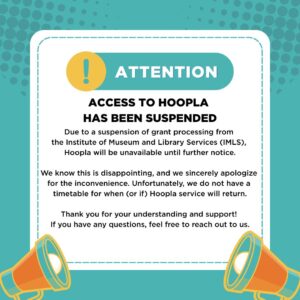
It’s been a week and a half since the upheaval at IMLS, and while folks are still reeling from all the changes, people have been galvanized into action1Yes, you absolutely can do both.. Social media feeds are revealing steady streams of posts. Grassroots campaigns are starting to take shape. More and more folks are starting to speak up. It’s on us to keep that energy going, and make sure the urgency of federal library funding isn’t lost on lawmakers and the public.
I’m grateful to everyone who has shared their content with me. It’s inspiring to see the broad coalition of voices – ranging from libraries and their related organizations to authors to affected patrons. Building a collective voice is an essential step, and it’s a comfort to see and be seen.
The next phase is to figure out how to direct all this effort. Who will be affected most by this? Who can become champions for library funding, both in and out of office? Amplifying these voices is essential, but it’s going to take some planning.
Here’s what I’m hoping to put together next:
- Organize existing artifacts. Surprise! Of course that’s the first step. We are library people. We collate.
Shoutout to the folks at the Kentucky Department of Libraries and Archives, for keeping me apprised of their effort to gather the myriad letters to media and electeds across the country. I’d like to pull these repositories together into one easy-to-browse interface. - Spot Trends. As we start to pull all this material into a critical mass, it’ll be useful to look for patterns. What works? What doesn’t garner a response? How do you effectively present the data in a way that’s meaningful? As things get more organized, I’m hoping to do some closer reads so we can build on our initial successes.
- Map All Impacts – Positive and Negative. While we take stock of our gains, we also need to illustrate just what is being lost with the elimination of IMLS funding2I recieved word last week that both projects for which I’m an advisory board-critter had their funding cancelled. Both projects – on rural open data and misinformation, are incredibly promising for libraries. Some libraries are already going public with notices about suspended services due to the loss of grant funding.
There are a lot of ways to present this data – I’m tinkering around at the moment and hope to have something shareable shortly.
What other measures do you see? How can we maintain – or even build – momentum?
No responses yet